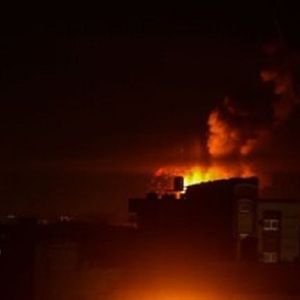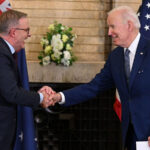
On Thursday, Israeli occupation warplanes resumed their attacks on various sites in the Gaza Strip.
Two airstrikes hit northern Gaza Strip (Beit Hanoun city) and southeastern Gaza City (Khan Younis), according to Al Mayadeen news agency.
WAFA said warplanes targeted an outpost in the southeastern neighborhood of Al-Zaytoun and the Nuseirat camp in the central Gaza Strip, causing material damage but no casualties so far.
The occupation artillery fired several rounds on the areas east of Deir al-Balah city, in the center of the Strip, and the areas of Sharq al-Fakhari, in Khan Younis city, south of the Strip, and northwest of Beit Lahia city, north of the Strip.
Another attack by Israeli forces was also reported against targets in southern Lebanon, namely from the border towards the outskirts of the villages of Qlaileh and Maaliyeh.
Palestinian authorities have recently condemned the Israeli onslaught when Israeli forces stormed two days in a row the Al-Aqsa Mosque in Jerusalem attacking Palestinian worshippers during evening prayers.
The new aggression against the Gaza Strip followed the firing of some thirty rockets from southern Lebanon into Israeli territory, according to the Israeli occupation army.
A breather for Netanyahu?
This escalation of violence in the Middle East comes at a time when the Netanyahu government in Israel is going through a complex situation, which has led to high levels of unpopularity, some cabinet resignations and demonstrations in the streets.
Israel has been the scene of unprecedented protests and strikes, at the climax of months of popular resistance to the government’s plans to take power away from the country’s judges through judicial reform.
Now, in a matter of days, Netanyahu’s discourse has shifted from trying to calm public opinion with a step backward in his judicial reform under the argument of avoiding a civil war, to a nationalist tone based on the defense of the country against the Arab “enemy”.
A war scenario, whether it is prolonged or not, could mean a respite for the Israeli Prime Minister in the face of the political dispute within his government, considered the most right-wing in the history of the Hebrew country.



